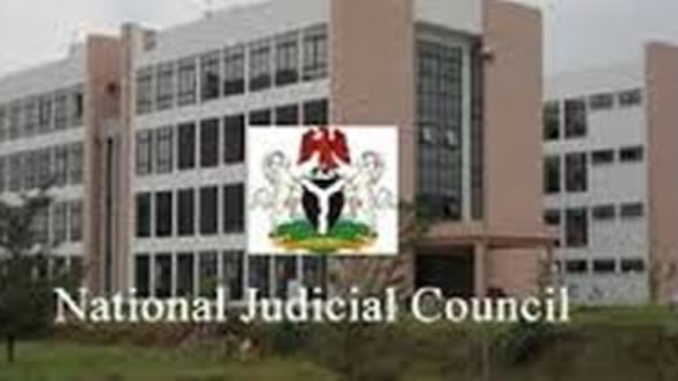
THE ranking of the police and the judiciary as the most corrupt public institutions in the country, in a survey conducted by the National Bureau of Statistics in partnership with the United Nations Office on Drugs and Crime, only confirms a widely held belief, which not a few Nigerians would posit. The integrity barometer, which covered a broad spectrum of government agencies, revealed that about N400 billion is committed to bribing public officials annually to get things done.
According to the 125-page UNODC report entitled: Corruption in Nigeria, Bribery: Public Experience and Response, July 2017, data collected from 33,067 households across the 36 states of the federation and Abuja between June 2015 and May 2016, scored the police 46.4 per cent; prosecutors 33 per cent; judges/magistrates 31.5 per cent.
But since the NBS-UNODC report was made public, both the police and the judiciary have tried vainly to extricate themselves from the marsh. A statement from the Police Public Relations Officer, Jimoh Moshood, debunked it. Categorically, it said, “… it is entirely misleading, a clear misrepresentation of facts, essentially based on hearsay…” Such is the stuff police image makers are accustomed to: hiding behind a finger. It is ridiculous and runs against the grain of reality.
The damning report on the Force is not the first by an international organisation. Amnesty International had, before now, plumed the police abysmally low on corruption. In fact, sleaze in the police is too evident on our roads, where roadblocks are mounted for extortion, motorists hotly chased and fired at, which sometimes lead to stray bullets killing innocent citizens. At police stations, citizens pay bribes to get bail; just as routine arrests are made for the victims to buy their way out. Those who cannot are dumped in cells and forgotten. Reports of how Nigerians are arrested in the dead of the night and marched to bank ATMs to withdraw money for their release abound, nor police personnel’s direct involvement in armed robbery or supply of arms to bandits any more secret.
For reprimanding policemen taking bribes at a roadblock, a youth – Victor Emmanuel – was pointedly shot dead, while returning from church in the presence of his mother, in Bayelsa State, in October, 2011. In November last year, an Assistant Superintendent of Police, Yuguda Abbah, was paraded in Abuja as the supplier of arms to a 45-member criminal gang led by one Oliver Honiola. Among the suspects were eight police personnel who had been aiding criminality in the North-East. The catalogue is endless.
So pervasive and repulsive is this moral atrophy in the police that a former Inspector-General of Police, Mohammed Abubakar, denounced it publicly in January 2012, barely one month in office, when he summoned senior officers to Abuja. “The Nigeria Police Force has fallen to its lowest level… police duties have become commercialised and provided at the whims and caprices of the highest bidder… Justice has been perverted, people’s rights denied, innocent souls committed to prison, torture and extrajudicial killings perpetrated,” Abubakar thundered!
Nobody could have put it better. Indeed, the man who wears the shoe, it is said, knows where it pinches. Such tough mien has always been the way of new IGs to create the impression that a new dawn has come. If Abubakar’s fire-eating salvo had served as a moral rearmament, his successor, Solomon Arase, could not have found the Force in the same mess. While inaugurating a police estate in Enugu, Arase gave an insight into why the monster thrives: “…corruption is borne out of fear of the unknown,” stressing, for instance, that, for some, concerns about retirement without a roof over their heads push them to “want to take risk.”
In the police, prosecutors and judges putatively as top bribe-takers, Nigeria has a debilitating triad with dire consequences for service delivery; and in this circumstance, the dispensation of justice. This is critical, given that the rule of law and justice provide the fount for a just and equitable society. When case files disappear; litigation drags on in courts; accusers suddenly morph into villains, and condemned drug barons fail to serve jail terms, the alarm bell should be deafening enough for all hands to be on deck to arrest the drift.
It gets even more bizarre when some retired senior justices play the “despicable role of bribing or intimidating judges,” under the guise of legal consultancy, thus, creating the “billionaire judges,” which the late Justice Kayode Eso decried. Joseph Daudu’s lamentation that justice “has been purchased on several occasions in the country,” and Femi Falana’s denunciation that the courts had become “supermarkets where only the rich do their shopping” put the matter in bold relief.
Therefore, the authorities cannot continue to live in denial; or give corrupt judicial officials a slap on the wrist. Such remiss has characterised the National Judicial Council exercise of its disciplinary powers over the bench for years. A ringing self-indictment stands out: the mere retirement it recommended for a judge it found to have thrice demanded N200 million from a litigant, for him to influence the Court of Appeal panel in Owerri.
For such a clear case, a long jail term would have ultimately been slammed on the debauched jurist, as is the norm in the United States, Italy and other jurisdictions where a judge’s seat is emblematic of awe and dignity. The invasion of homes of judges where huge inexplicable cash was found, and ongoing trials of some of them suspected of wrongdoing, give credence to the postulation that, indeed, our judiciary is entombed in a moral valley. The only fit and proper propitiation, therefore, is to punish the culprits, as “Justice is truth in action,” says Benjamin Disraeli.
END

Be the first to comment